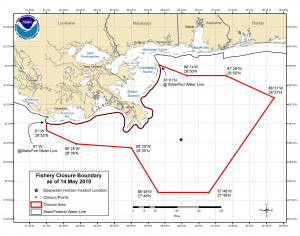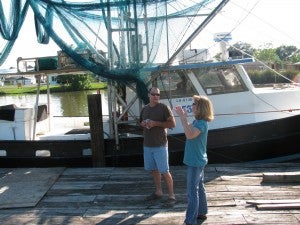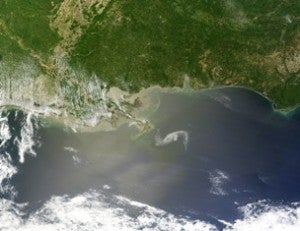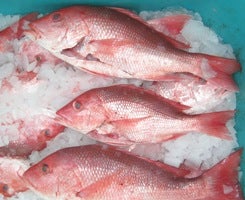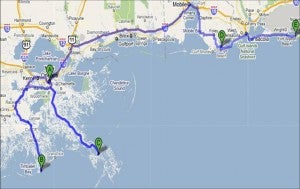
Click the map to see our route along the coast.
Last week, Laura Williamson and I traveled from the Gulf coast fishing towns of Port Fourchon, Louisiana to Destin, Florida to meet with offshore commercial and recreational fishermen, wholesale fish dealers and restaurant owners to learn how the uncontrolled oil spill is impacting businesses and if there are any ways that our organization can help.
The oil slick and measures to control it present real threats, especially for many struggling Louisiana fishermen and their families who are not able to fish inshore right now. The good news is that most offshore fishing and many coastal areas are not directly impacted by the oil spill so far, but this is mostly missing from media coverage.
Below is a summary of some important things we learned last week. We’ll post fishermen’s stories over the course of the week.
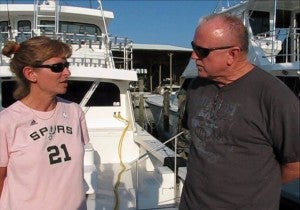
EDF met with Alabama charter boat operator Ben Fairey, who is concerned about the negative perception that the media is creating about all Gulf fishing. All of his fishing trips in May have been cancelled because of the perceived impacts of the oil spill, even though fishing is still open and safe in Alabama.
Fishermen face uncertainty
Fishing families, wholesalers, and seafood restaurant owners we met with face tremendous uncertainty, not knowing whether the spill will be contained in another week, or many months from now. Some fishermen are unsure if they should move their boats to a safer location to keep fishing, or stay put to lend a hand to clean the spill or lease their services to crews of scientists and news reporters. Over the long-term, an uncontrolled spill could have many impacts on fish, oysters, shellfish, wetlands that serve as nurseries, and the rest of the food chain.
Media misses major angle to the story
While the threats are real, the sentiment we heard most loudly and clearly was that the negative reports from the media are mostly exaggerated, at least for the current situation, and are driving away tourists and regular offshore fishing clients from areas that are not affected. There is a lot of exasperation over this. Several folks told us that people will be scared to eat Gulf seafood or risk taking a fishing trip. At the same time, people understand that this might become an “unprecedented disaster,” as it is currently being portrayed, if oil continues spilling for a long time.
Fishing communities want solutions
People told us they want solutions, but recognize that the oil industry has a huge economic impact in many parts of the Gulf. They believe that the accident should provide lessons-learned for environmental protections and alternative energy.
Solutions for fishing communities: tell us what you think
EDF is working to understand what fishing communities need to get through this hard time. We’re also interested in improving offshore fishery management to develop sustainable fish populations and fishing practices and businesses that are resilient to natural and man-made disasters.
EDF has been working in the Gulf for 15 years and this oil spill threatens the fishing communities of the Gulf that have become national leaders in transforming oceans fisheries to models of sustainability.
Help us by explaining how the oil spill is affecting you and your business. You can respond with a comment on this blog, or send us an email.
Never miss a post! Subscribe to EDFish via a email or a feed reader.










